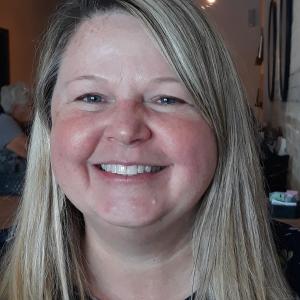School Based Therapy

Description
For many students with disabilities, related services (including physical therapy and occupational therapy) are an essential element of their Individualized Education Program. This course focuses on physical and occupational therapy in the educational environment under the Individuals with Disabilities Education Act (IDEA) and covers a wide variety of topics relevant to the therapist working in (or interesting in working in) the school setting. The course covers legislation (including the Final Regulations of the IDEA), special education, related services, Individualized Education Programs and meetings, therapists’ roles and responsibilities, assessments and intervention in the educational setting, assistive technology, procedural safeguards, 504 placement, documentation, and Response to Intervention. Resources are also provided in this course including key sections and definitions from the most recent Federal regulations as well as resources to assist the therapist with IDEA implementation and other issues relating to providing physical and occupational therapy services in the school setting.


Physicourses is an AOTA Approved Provider of professional development. Course approval ID# 6295. This distance learning-independent course is offered at 0.9 CEUs Intermediate Level, OT Service Delivery, Foundational Knowledge. AOTA does not endorse specific course content, products, or clinical procedures.
Available Course Credits
 |
AOTA | 9.00 | |
| Arizona State Board of Physical Therapy | 9.00 | ||
| Arkansas State Board of Physcial Thearpy | 9.00 | ||
| California Physical Therapy Board | 9.00 | ||
| Colorado Division of Professions and Occupations | 9.00 | ||
| Connecticut Department of Public Health | 9.00 | ||
| Delaware Examining Board of Physical Therapists and Athletic Trainers | 9.00 | ||
| District Of Columbia Department of Health | 9.00 | ||
| FPTA | 9.00 | ||
| Georgia State Board of Physical Therapy | 9.00 | ||
| Hawaii Board of Physical Therapy | 9.00 | ||
| Idaho Physical Therapy Licensure Board | 9.00 | ||
| Indiana Physical Therapy Board | 9.00 | ||
| Iowa Board of Physical Therapy and Occupational Therapy | 9.00 | ||
| Kansas State Board of Healing Arts | 9.00 | ||
| Kentucky Board of Physical Therapy | 9.00 | ||
| Louisiana Physical Therapy Board | 9.00 | ||
| Maine Board of Physical Therapy | 9.00 | ||
| Massachusetts Board of Allied Health Professionals | 9.00 | ||
| Michigan Board of Physical Therapy | 9.00 | ||
| Mississippi State Board of Physical Therapy | 9.00 | ||
| Missouri Advisory Commission for Physical Therapists | 9.00 | ||
| Montana Board of Physical Therapy Examiners | 9.00 | ||
| Nebraska Department of Health and Human Services | 9.00 | ||
| New Mexico Physical Therapy Board | 9.00 | ||
| New York State Education Department | 9.00 | ||
| North Carolina Board of Physical Therapy Examiners | 9.00 | ||
| North Dakota Board of Physical Therapy | 9.00 | ||
| Office of Professional Regulation, Vermont Secretary of State | 9.00 | ||
| Oklahoma Board of Medical Licensure and Supervision - Physical Therapy | 9.00 | ||
| Oregon Board of Physical Therapy | 9.00 | ||
| Pennsylvania Bureau of Professional and Occupational Affairs - Physical Therapy | 9.00 | ||
| Physical Therapy Governing Board New Hampshire | 9.00 | ||
| South Carolina Board of Physical Therapy | 9.00 | ||
| South Dakota Physical Therapy License Board | 9.00 | ||
| State of Alabama Board of Physical Therapy | 9.00 | ||
| State of Rhode Island Department of Health | 9.00 | ||
| Tennessee Board of Physical Therapy | 9.00 | ||
| Texas Physical Therapy Association | 9.00 | ||
| Utah Physical Therapy Licensing Board | 9.00 | ||
| Virginia Board of Physical Therapy | 9.00 | ||
| Washington State Board of Physical Therapy | 9.00 | ||
| West Virginia Board of Physical Therapy | 9.00 | ||
| Wisconsin Physical Therapy License Board | 9.00 | ||
| Wyoming Board of Physical Therapy | 9.00 |
Course Content
| 628a School Based Therapy Course | Module | ||
| Course Evaluation | Module |
Heather Lundy, PT, MPT
Heather Lundy, PT, MPT, earned a Master of Physical Therapy from Texas Tech University Health Science Center in 1998. She has worked in a variety of pediatric settings including the school system (serving PPCD, elementary, middle school, and high school students), the ECI setting (providing services to infants and toddlers), outpatient pediatric clinics (including land and aquatic therapy), and inpatient rehabilitation. Her experience includes serving as both a Clinical Instructor and the Center Coordinator of Clinical Education. She has also participated in a variety of pediatric specialty clinics. Heather practices Ai Chi regularly. She is a member of ATRI (The Aquatic Therapy & Rehab Institute, Inc.) and enjoys sharing her knowledge of Ai chi and BackHab techniques and attending Aquatic Therapy Professional Development Days. Heather has authored other home-study continuing education courses for PTcourses.com and OTcourses.com, including School Based Therapy.

628a School Based Therapy Course Objectives
1. Recall the importance of the Individuals with Disabilities Education Act (IDEA) on
our educational system.
2. Recall current legislation that supports the provision of special education and
related services in the educational environment.
3. Identify common physical and occupational therapy responsibilities in the
educational setting.
4. Recall aspects of evaluations, reevaluations, service delivery, and documentation in
the educational setting.
5. Identify a variety of assessment tools that can be used in the educational setting.
6. Recall the purposes and requirements of the IEP meeting and document.
7. List the benefits of team collaboration and communication as well as integrated
therapy in the educational setting.
8. Identify the impact that seating and positioning have on students and their
education.
9. List the 13 IDEA disability categories that guide how states define who is eligible
for special education and recall how and when the optional category of
developmental delay can be used in the educational setting.
10. Define the terms: special education, “child with a disability”, related services, and
assistive technology under the IDEA.
11. List school services that are considered “related services” under the IDEA.
12. Recall introductory information about procedural safeguards in the educational
setting.
13. Define the terms Response to Intervention and potential therapist participation.
14. Recall current research that relates to school-based therapy.
628a School Based Therapy Table of Contents
Page # Contact Hour ( )
Course Instructions, Author, Description, Table of Contents, Pre-test, Objectives 1 (1)
A. BACKGROUND AND HISTORY OF LEGISLATION 8
B. WELCOME TO THE INDIVIDUALS WITH DISABILITIES EDUCATION ACT (IDEA) 9
C. ACRONYMS IN EDUCATION 10
D. PROVIDING PT IN THE EDUCATIONAL SETTING UNDER PART B OF THE IDEA 11
E. PROVIDING OT IN THE EDUCATIONAL SETTING UNDER PART B OF THE IDEA 16
F. COMMON PHYSICAL AND OCCUPATIONAL THERAPY RESPONSIBILITIES IN THE
EDUCATIONAL SETTING 19 (2)
1. Participate in initial evaluations of referred students 20
a. Physical therapy examination and evaluation 27
b. Occupational therapy examination and evaluation 32
2. Participate in student re-evaluations 37 (3)
3. Prepare written reports of evaluation findings 39
4. Participate in the development of student IEPs (Individual Education Programs)40
5. Participate in collaborative/team meetings and communications 53 (4)
6. Design and implement therapy services and intervention 56
a. Service delivery models 57
b. Physical therapy Intervention 61
c. Occupational therapy Intervention 70 (5)
7. Document for record keeping, legal & district requirements, communication &
recording progress 78
G. SPECIAL TOPICS IN SCHOOL-BASED THERAPY 80
1. Special Education 80
2. 504 Placement 84
3. Introduction to Procedural Safeguards and Parental Consent 86
4. Workload vs. Caseload 88 (6)
5. Assistive Technology 89
6. Accommodations and Modifications 90
7. Response to Intervention (RtI) 91
6
8. Universal Design for Learning 95
9. Transfer Students
10. Children with Disabilities Enrolled by Their Parents in Private Schools 96
11. Obtaining Medical Prescriptions/Referrals 99
12. Funding 100
H. DEFINITIONS AND INFORMATION FROM THE FINAL REGULATIONS OF IDEA 100
1. Assistive Technology 101
2. Assistive Technology Device
3. Assistive Technology Service
4. Child Find 102
5. Child with a Disability 103
a. Autism 104 (7
th hour)
b. Deaf-blindness
c. Deafness
d. Emotional disturbance
e. Hearing impairment
f. Intellectual disability
g. Orthopedic impairment
h. Other health impairment
i. Specific learning disability
j. Speech or language impairment
k. Traumatic brain injury
l. Visual impairment
6. Consent 106
7. Consultation (For Parentally-Placed Private School Children)
8. Determination of Eligibility 107
9. Educational Service Agency 108
10. Equitable Services (For Parentally-Placed Private School Children)
11. Evaluation 109
12. Evaluations (Initial Evaluation) 111
13. Evaluations and Reevaluations
14. Extended School Year Services 113
15. Free Appropriate Public Education (FAPE)
16. Independent Educational Evaluation 115
17. Individualized Education Program (IEP) 117
18. IEP Team 122 (8)
19. Infant or Toddler With a Disability 123
20. Least Restrictive Environment (LRE) 124
21. Local Educational Agency
22. Nonacademic Services and Settings 125
23. Occupational Therapy
24. Parental Consent 126
25. Parentally-Placed Private School Children With Disabilities
26. Parent Participation 128
27. Physical Education
28. Physical Therapy 130
29. Public Agency
30. Reevaluations
31. Related Services
7
32. Services Plan 133
33. Special Education
34. State
35. State Educational Agency
36. Supplementary Aids and Services
37. Transition of Children from Part C 135
38. Transition Services
39. Universal Design
CONCLUSION 136 (9)
EXAM AND EVALUATION 146
Customer Cancellation:
Customers may request cancellations of their enrollment or subscription in our digital or live educational services, subject to the terms outlined below. Cancellation requests must be made in writing, either through email or through our designated cancellation process.
Refund Policy:
Refunds will be provided according to the following guidelines: i) For cancellation requests made within 5 days of the initial enrollment or subscription, a full refund will be issued. Refunds will be issued using the same method of payment used for the original transaction, unless otherwise agreed upon in writing.
Provider Cancellation:
In the event Physicourses cancels your course, you will be issued a full refund or transfered to a course of equal or greater value.
Physicourses Conflict of Interest Disclosure Policy for Authors and Staff:
All persons in a position to control the content of any educational activity (authors or staff from Physicourses) are required to disclose to Physicourses any potentially biasing or potential conflict of interests in relationships of a financial, professional, or personal nature.
The intent of this disclosure is not to prevent authors or staff with commercial affiliations from planning an educational activity, or to prevent a Presenter with commercial affiliations from presenting, but rather to inform Physicourses of any potentially biasing relationships so that conflicts are resolved prior to the activity.
It is the policy of Physicourses to ensure balance, independence, objectivity and scientific rigor in all of its continuing education activities. All relevant conflicts of interest identified by the planner, presenter, or as determined by Physicourses will be disclosed to the audience verbally and in writing prior to the start of the presentation.
Definitions for Authors/Staff:
Relevant financial relationships are those relationships in which you benefit by receiving a salary, royalty, intellectual property rights, gift, speaking fee, consulting fee, honoraria, ownership interest (e.g., stocks, stock options, or other ownership interest, excluding diversified mutual funds), or other financial benefit. Financial relationships can also include “contracted research” where the institution gets the grant and manages the funds and you are the principal or named investigator on the grant.
Educational Level: Intermediate
Target Audience: PT, PTA, OT, OTA
Course Completion Requirements: Passing an online exam with 70% or greater will be required to earn continuing education credit
This course is approved for 0.9 CEUS. 9 contact hours
Physicourses is committed to ensuring accessibility to the most extensive audience possible. If you have any questions or special needs requests, please contact us at info@physicourses.com.